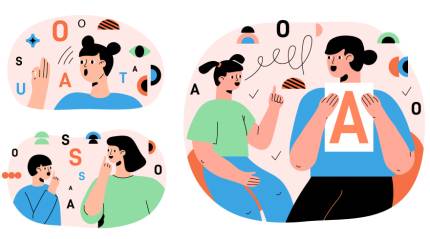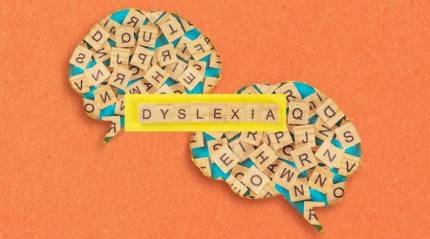Navigating Dyslexia Assessment: A Complete Resource
- 18 August 2025

The world of dyslexia assessment is often a confusing landscape for many. Gaining a thorough understanding of this process can help alleviate concerns and steer individuals towards the appropriate steps for diagnosis. These assessments can be immensely beneficial in identifying specific learning difficulties, thus empowering individuals with the knowledge and resources to manage them effectively.
What Is a Dyslexia Assessment?
A dyslexia diagnostic assessment is designed to diagnose dyslexia, a specific learning difficulty that affects reading, writing, and spelling. It's essential to differentiate between screening and diagnostic assessments. While a screening can indicate the potential presence of dyslexia, a diagnostic assessment offers a comprehensive evaluation of an individual's cognitive and literacy skills. This deeper understanding helps in formulating personalized intervention strategies that cater to individual needs.
The process of understanding the cognitive abilities of an individual, specifically in the realm of phonological processing, memory, rapid naming, and other related skills, is meticulously managed by qualified professionals. These experts conduct an assessment for dyslexia in adults, which is not limited to just tests but also includes detailed evaluations. The outcomes of these evaluations offer a comprehensive understanding of the individual's strengths and challenges. This knowledge is instrumental in charting the path for further educational and personal development.
The Benefits of an Assessment for Dyslexia
The foremost benefit of undergoing an assessment for dyslexia is clarity. Understanding the specific nature of one's learning challenges can significantly ease the stress associated with academics. In addition, this insight opens avenues for tailored intervention strategies, ensuring that individuals can tackle their difficulties proactively.
Aside from academic support, the process plays a crucial role in enhancing self-awareness and self-esteem. As individuals better understand their challenges, they can adopt effective coping mechanisms, leading to improved emotional well-being. Furthermore, it allows for access to accommodations that are often vital in educational and professional settings.
Dyslexia Assessment for Adults
Adults can also benefit greatly from a dyslexia assessment for adults. Many have lived with undiagnosed dyslexia since childhood, only realizing the signs later in life. Assessments for adults differ slightly from those for children, focusing more on reading habits and life experiences. This is crucial for implementing effective workplace strategies and accommodations.
For adults seeking clarity, various assessment tools for dyslexia are available. These tools are specifically tailored to examine the functional implications of dyslexia in everyday tasks, ensuring individuals receive the support they need in their personal and professional lives.
Exploring Online and Free Assessment Options
With the advancement of technology, accessing a dyslexia assessment online free has become increasingly feasible. Numerous platforms offer free preliminary screenings, making it easier for individuals to take the first step towards understanding their learning difficulties. However, it is essential to note that while online assessments can offer insights, they do not replace a professional diagnostic assessment.
Online assessments can serve as an effective initial step. They can help determine if a comprehensive evaluation is warranted. Following an dyslexia assessment online, many find it beneficial to pursue further diagnostic assessments to ensure accurate results and intervention planning.
Different Assessment Tools for Dyslexia
There are various dyslexia assessment tools available today. Each tool aims to evaluate different aspects of cognitive function and literacy skills. Educators and professionals often utilize a combination of these tools to ensure a holistic assessment process.
| Tool Name | Purpose |
|---|---|
| Dyslexia Screening Test | Initial identification of dyslexia symptoms |
| Comprehensive Test of Phonological Processing (CTOPP) | Assesses phonological awareness and processing abilities |
| Wechsler Individual Achievement Test (WIAT) | Measures reading and writing skills |
When selecting an assessment tool, factors like age, contextual needs, and available resources play a crucial role. Each tool has its unique strengths, and the choice often depends on the specific assessment goal.
FAQs About Dyslexia Assessment Tests
- What does a dyslexia assessment test involve?
A dyslexia assessment test evaluates cognitive and literacy skills such as phonological processing, memory, and language abilities to help diagnose dyslexia.
- Can adults undergo a dyslexia assessment?
Yes, adults can take an adult dyslexia assessment. These assessments often focus on reading experiences, workplace challenges, and personal insights to provide tailored support strategies.
- Are free online dyslexia assessments reliable?
Online assessments can offer useful initial insights, but should not be seen as replacements for professional evaluations. They are best used as a guide to determine whether further testing is needed.
- How long does the assessment process take?
The time required depends on the type of test and individual circumstances. Comprehensive diagnostic assessments may take several hours over one or more sessions.
- Who conducts dyslexia assessment tests?
Assessments are typically carried out by qualified specialists such as educational psychologists or special education professionals to ensure accurate results.
Understanding the nuances of a dyslexia screening assessment can empower individuals to take control of their learning journey. By gaining a thorough understanding and using the appropriate tools, individuals can significantly improve their literacy skills and self-awareness. Additionally, engaging in a dyslexia self-assessment test can be an excellent starting point for personal reflection and awareness.



